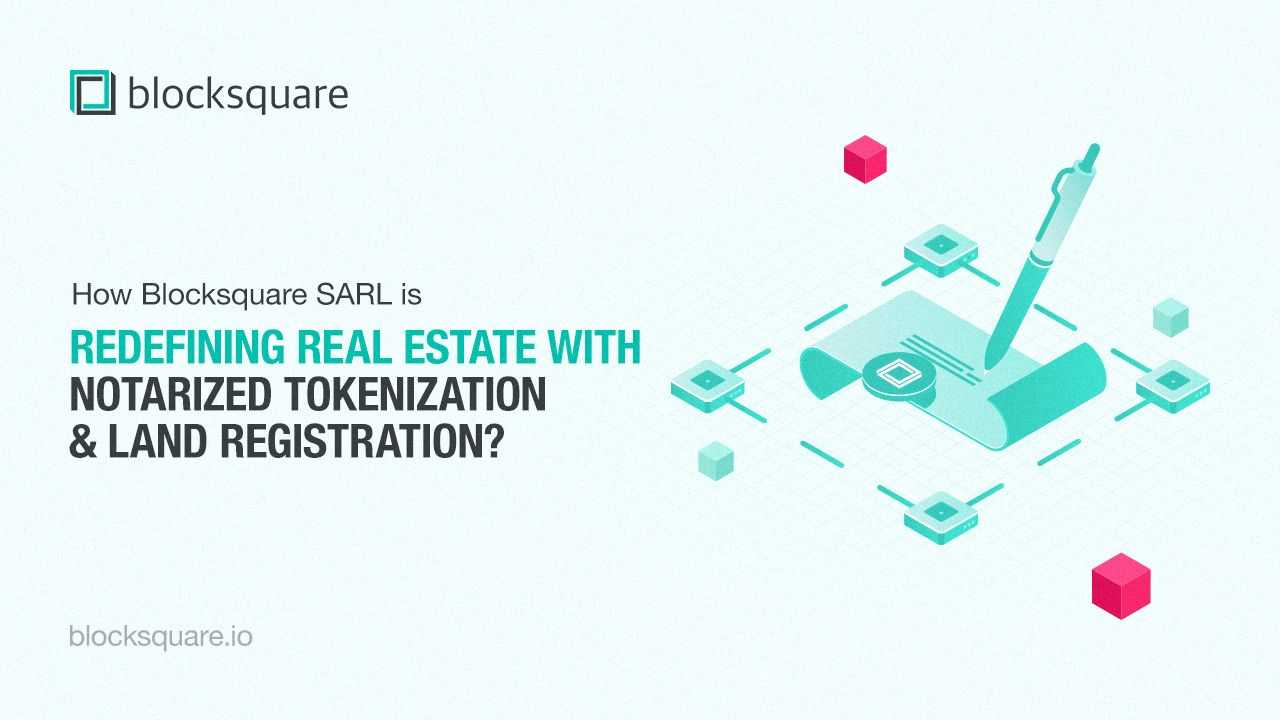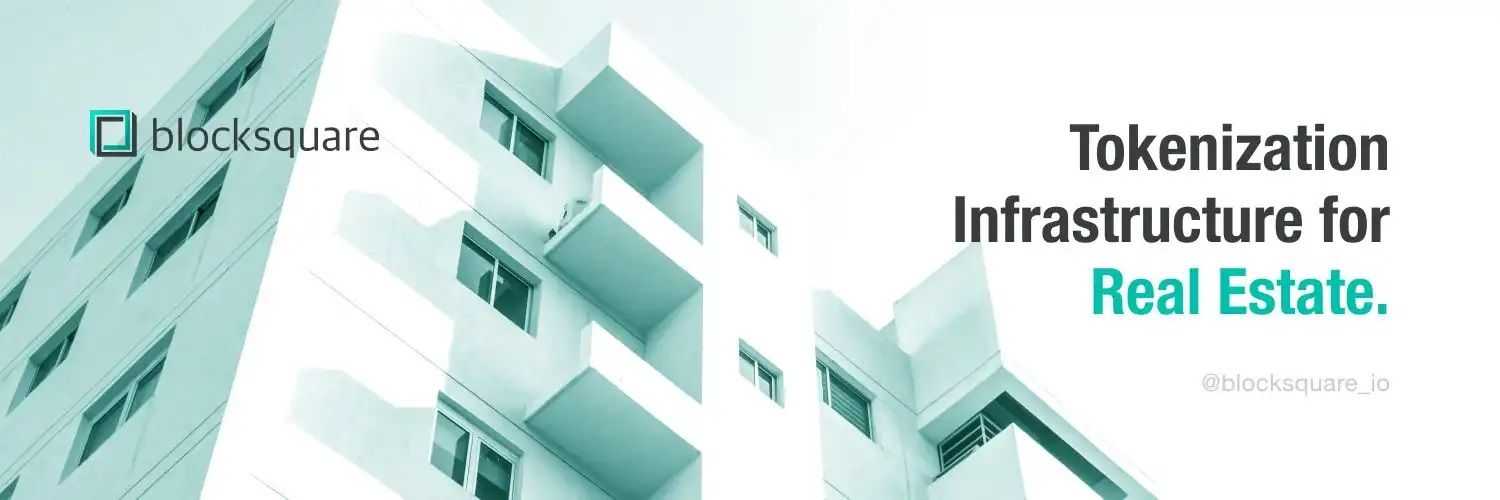How Blocksquare SARL is Redefining Real Estate with Notarized Tokenization and Land Registration
The world of real estate tokenization has been evolving rapidly, and Blocksquare has taken a groundbreaking step forward. The company has established Blocksquare SARL in Luxembourg, a legally compliant real estate tokenization framework that integrates with land registries through notarized agreements. This marks a major milestone in the industry, allowing investors, property owners, and marketplace operators to benefit from a more secure, scalable, and compliant system.


In this article, we’ll break down how Blocksquare’s model differs from traditional tokenization, why Luxembourg was chosen, and how this framework solves major challenges in the industry. If you’re interested in real estate investments, blockchain technology, and regulatory compliance, this deep dive will give you everything you need to know.
1. The Evolution of Real Estate Tokenization
Tokenizing real estate is not a new concept. Over the years, companies have attempted to bring blockchain technology to real estate, making it easier to fractionalize ownership, increase liquidity, and improve access for investors. However, most early models faced significant compliance challenges.
The Problem with Early Models
- Early tokenization efforts lacked legal clarity.
- Investors faced risks due to regulatory uncertainty.
- The risk of double spending (selling the same tokenized asset multiple times) was a major concern.
- Many tokenization models did not integrate with land registries, making the legal ownership of tokens ambiguous.
Recognizing these limitations, Blocksquare initially started as an infrastructure provider. Over time, the company pivoted to create a turnkey solution that provides a legally compliant pathway for tokenizing real estate.
2. What Makes Blocksquare’s Luxembourg Model Different?
Blocksquare has introduced an "Authorized Real Estate Tokenization Framework" that ensures compliance, investor protection, and security. Here’s what makes it unique:
A. Integration with Land Registries
Unlike previous models, Blocksquare’s system directly integrates with land registries. This ensures that every tokenized property has a legally recognized status, making it much safer for investors.
B. Notarized Agreements
To strengthen compliance, the framework includes notarized agreements:
- A notary certifies the tokenization process, ensuring that it follows legal requirements.
- The notary’s involvement provides a legal guarantee that tokens are linked to real-world property assets.
- Investors now have clear recourse in case of default or disputes.
C. Jurisdiction-Agnostic Approach
- The model can be applied across multiple countries with slight modifications.
- Property owners remain in control of their properties while still allowing tokenization.
- The framework is designed to work under EU laws, making it scalable across Europe.
D. Addressing Investor Risks
One of the biggest risks in tokenized real estate has been the potential for fraud—for instance, a property being sold multiple times using tokens. Blocksquare’s system prevents this by using:
- Notarized agreements to verify the transaction.
- Land registry charges to ensure token holders have legal claims to economic benefits.
- Clear rules for what happens in case of property owner default.
3. The First Notarization in 2023: A Crucial Milestone
Before expanding into Luxembourg, Blocksquare needed to prove that their tokenization framework could work legally. This led to their first notarized tokenization in 2023.
A. The First Tokenized Property
- The pilot project was conducted in Slovenia.
- The first tokenized property was a parking space, which served as a sandbox test.
- The goal was to integrate a notarized agreement into the tokenization process.
B. Challenges Faced
- Convincing the Notary:
- Notaries had no prior experience with blockchain or tokenization.
- Blocksquare had to explain blockchain technology and the concept of tokenized real estate in legal terms.
- The notary initially struggled to see how tokenization fit into traditional real estate law.
- Addressing Legal Uncertainties:
- Questions arose about liabilities—what would happen if Blocksquare went out of business?
- Blocksquare had to create a separate entity to hold tokenized property rights independently of their technology startup.
- Developing a Sustainable Legal Structure:
- The team worked with legal experts to design a framework that integrates with land registries.
- Notarized agreements were tested to ensure legal enforceability.
C. The Outcome: Success
The first notarized tokenization was completed successfully. The notary helped refine the legal approach, providing valuable insights. The learnings from this pilot shaped the Luxembourg framework.
4. Why Luxembourg? The Strategic Move
Blocksquare’s decision to set up in Luxembourg was not random—it was strategic. Here’s why:
A. Luxembourg’s Regulatory Environment
- Luxembourg is known for its progressive stance on tokenization and digital assets.
- The country has a clear legal framework for tokenizing real-world assets.
- Many financial institutions and investment funds are already based in Luxembourg, making it an ideal hub for institutional adoption.
B. Partnership with CMS
- CMS, a global law firm, played a key role in making the model legally compliant.
- They have offices worldwide, allowing Blocksquare to scale faster.
- CMS’s involvement ensures that each jurisdiction’s legal nuances are addressed properly.
C. A Step Ahead of EU Regulations
- The European Union recently introduced MiCA (Markets in Crypto-Assets Regulation).
- Blocksquare’s model avoids being classified as a financial instrument under MiFID II, making compliance easier.
- Luxembourg’s regulatory expertise helps ensure that Blocksquare remains compliant across Europe.
5. How This Model Benefits Investors, Property Owners, and Marketplace Operators
One of the most important aspects of Blocksquare’s new model is how it benefits all stakeholders in the real estate tokenization ecosystem.
A. Benefits for Investors
- Stronger legal protections: Investors now have clear recourse if things go wrong.
- Safer investment model: The risk of double spending is eliminated.
- More transparency: Investors can verify their legal claim to economic benefits via land registries.
B. Benefits for Property Owners
- Easier compliance: Property owners no longer need to worry about complex regulations.
- No need for a financial license: The token issuance is handled through Blocksquare’s Luxembourg entity.
- More attractive to institutional investors: The new structured investment model makes tokenized properties more appealing to larger investors.
C. Benefits for Marketplace Operators
- Simplified regulatory burden: Operators do not need extensive financial licenses.
- Decentralized Finance (DeFi) Compatibility: Blocksquare’s marketplace runs on a DeFi infrastructure, ensuring self-custody and peer-to-peer transactions.
- Greater scalability: The Luxembourg model allows operators to expand globally.
5. Next Steps: Pilots and Commercialization
Now that Blocksquare has set up its Luxembourg entity, the next phase is executing pilot projects and scaling commercialization.
A. Pilot Projects
- Blocksquare will run pilots in Belgium, Austria, Slovenia, and other countries.
- Each pilot will refine the legal and technical integration process.
- Once successful, these pilots will serve as a blueprint for expanding into more jurisdictions.
B. Commercial Viability
- The biggest challenge now is reducing costs so that the model can scale profitably.
- The goal is to create a "mortgage-like" system where the costs of tokenization are predictable.
- Fergus Murphy, a banking expert, will play a key role in making this financially viable.
C. Institutional Adoption
- Big banks and investment funds are entering tokenization.
- Blocksquare is positioning itself as a leader in regulatory-compliant real estate tokenization.
- The long-term goal is to attract more corporate and institutional investors.
Conclusion: The Future of Real Estate Tokenization is Here
Blocksquare has achieved a major breakthrough in real estate tokenization by combining on-chain blockchain infrastructure with off-chain legal compliance. Their Luxembourg entity now provides a clear, secure, and legally compliant framework for real estate investments across Europe.
With pilot projects launching and institutional investors taking interest, this model has the potential to redefine how real estate assets are tokenized and traded. The company’s focus on compliance, investor security, and scalability sets it apart from previous tokenization attempts.
If successful, Blocksquare could pave the way for a future where real estate assets are seamlessly tokenized, legally protected, and accessible to investors worldwide.
Key Takeaways
- Blocksquare has launched a legally compliant real estate tokenization framework in Luxembourg.
- This model integrates with land registries and includes notarized agreements for investor security.
- The system prevents double spending and ensures token holders have legal claims.
- Luxembourg was chosen for its advanced regulatory environment and legal expertise.
- Pilot projects in Belgium, Austria, and Slovenia will test the model before full-scale expansion.
- The future of real estate tokenization is now structured, compliant, and ready for global adoption.
Would you invest in a tokenized real estate asset now that it has legal clarity and investor protections? Let us know your thoughts!
